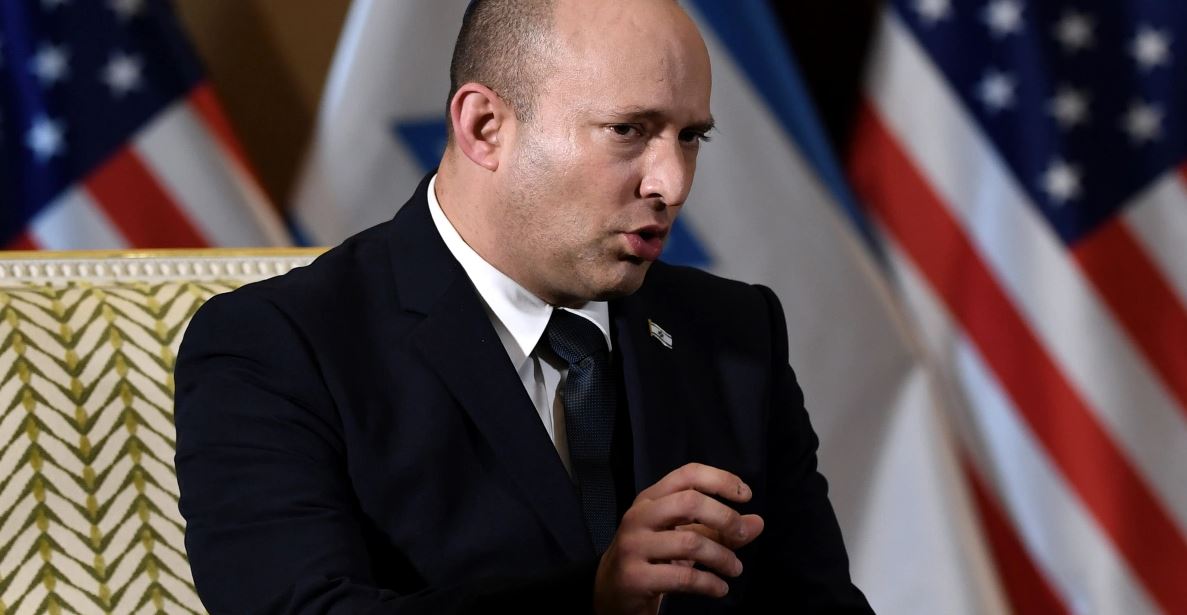AhlulBayt News Agency (ABNA): Israel and the US have tried to halt Iran's nuclear program for a long time, but recently a rift started to develop between the two historic allies about ways to deal with this "threat" as both parties have different priorities.
Vienna talks aimed at allowing the US and Iran to return to conformity with the 2015 Iran nuclear deal, with further progress achieved but no final agreement on how that would happen. Disagreements persist on US sanctions easing and Iran's required nuclear measures. Since the United States, then-President Donald Trump withdrew from the agreement in 2018.
Regarding the Vienna talks on the 2015 nuclear deal Programme, Iran's foreign minister asserted that "Iran is serious about negotiating to reach an agreement and the country has made all necessary preparations to reach a good agreement if the other parties return to their full commitments.
At the end of the first round of talks in Vienna, Israeli Prime Minister Naftali Bennett announced. "I informed our friend that Iran is attempting to blackmail us with nuclear weapons, and we must not succumb to it. Until Iran is prevented from obtaining a nuclear weapon, we will neither rest nor be silent."
Whereas, the Iranian Foreign Ministry emphasized that the Iranian team to the Vienna Talks will not obey Israeli occupying Prime Minister Benjamin Netanyahu's demands. "Israel," whose very existence depends on tension, is at it again, spreading disinformation to sabotage the Vienna talks. "Israel" has provided intelligence with the US and many European partners, indicating that Iran is taking technical steps to prepare to enrich uranium to 90% purity, the threshold required for a nuclear bomb.
According to Israeli Foreign Minister Lapid, Iran was trying to buy time to advance its nuclear programme, and major powers needed to come up with a new strategy. He further stressed, Sanctions must be tightened, and there must be a genuine military threat since that is the only way to stop Iran from pursuing its nuclear weapons ambitions. "Israel's" government has stepped up diplomatic efforts to persuade foreign powers to maintain Iran sanctions and refuse to compromise during the Vienna talks.
As the discussions in Vienna began, "Israel's" Seemingly impossible efforts to persuade the world that Iran cannot and must not be trusted continued. Over the years, "Israel" has been driven by two approaches to Iran. The first is to stop Iran from getting a nuclear weapon by whatever means necessary. According to the second view, if a power of Iran's size is sufficiently determined, it will attain nuclear capability one way or another.
"Israel" essentially wants to keep the maximum pressure tactic that has resulted in the worst of all worlds. As a result, "Israel's" strategy is unlikely to succeed in preventing the Biden administration from lifting sanctions. Despite its resistance to Iran having nuclear weapons, "Israel" has secretly built nuclear weapons that are not covered by the Non-Proliferation Treaty (NPT), an international treaty that governs the regulations of the world's nuclear arsenal.
"Israel" is a staunch critic of the 2015 nuclear agreement and does not want the United States to return to it under Joe Biden's administration. Bennett met with President Joe Biden at the White House to discuss Iran. Biden informed Israeli Prime Minister Benjamin Netanyahu that if diplomatic talks on Iran's nuclear deal failed, the US would be ready to take other steps. Washington has frequently stated that its patience was wearing thin and that if negotiation with Iran failed, it would consider other options. If negotiations with Iran fail, Washington has warned to implement a "Plan B." The United States and "Israel" share common ideals and interests, and this will continue to be the case.
Earlier, Mikhail Ulyanov, Russia's ambassador to international organizations in Vienna stressed, "First and foremost, the United States must lift sanctions, and Iran must make its nuclear programme in conformity with the JCPOA's terms."
According to the US special envoy to Iran Robert Malley, If Iran uses the Vienna talks as a pretext to advance its nuclear programme, the US and its allies will put pressure on it. The US hopes not to get there, but if they do, pressure on Iran will have to rise to convey a message that the path it is on is the wrong one. It has an alternative avenue available to it, but it will not be accessible indefinitely because Iran's nuclear programme is jeopardizing the fundamental substance of the 2015 deal, according to the US view.
Iran's top diplomat indicated Tehran hoped for a positive outcome from current talks in Vienna aimed at resurrecting the 2015 nuclear deal with international powers, but he voiced concern about the US and other country's intentions. On the one hand, US authorities are requesting negotiations and a return to the nuclear deal, but they are also slapping fresh sanctions on Iranian individuals and institutions. What matters is that these talks produce results and that the Western parties show their seriousness and goodwill at the negotiating table and in their actions.
The opinions mentioned in this article do not necessarily reflect the opinion of ABNA24, but rather express the opinion of its writer exclusively.
/129
source : Al Mayadeen News
Thursday
16 December 2021
7:54:24 AM
1209049

"Israel" and the US have tried to halt Iran's nuclear program for a long time, but recently a rift started to develop between the two historic allies about ways to deal with this "threat" as both parties have different priorities.
